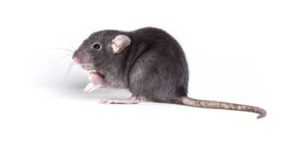You’ve heard about rats building nests in your home and going through your garden, but there’s another place where these pests can wreck havoc – your car.
In fact, rats gravitate toward your vehicle for its sense of safety. Its interior is out of the way and, more importantly, isn’t accessible by most predators. Additionally, as cold weather and winter roll around, its engine and other interior spots offer shelter and warmth. What can happen when rats hide in your car?
Rat Damage in Your Car?
 Of all the places inside your vehicle, rats prefer the engine compartment, behaving in the same way they do inside your home: Looking for nesting materials and gnawing to keep their teeth sharp. Unfortunately in the process, they tear up your car’s internal components – including your sound-proofing insulation – then go after the wires for teeth sharpening! Yes, your car is susceptible to rat damage. In particular, rats chew and eat car wires!
Of all the places inside your vehicle, rats prefer the engine compartment, behaving in the same way they do inside your home: Looking for nesting materials and gnawing to keep their teeth sharp. Unfortunately in the process, they tear up your car’s internal components – including your sound-proofing insulation – then go after the wires for teeth sharpening! Yes, your car is susceptible to rat damage. In particular, rats chew and eat car wires!
When this occurs, bare wires may touch each other, creating a short circuit. Basically, the more the rats gnaw, the greater the damage – even to the point that your car may no longer run.
At the same time, their presence adds extra insulation, hair and food to your car’s engine, which may choke down the line if the problem goes unfixed. Worse, their excrement accumulates in the car and engine block. Unfortunately, rat urine and feces spread diseases like the hanta virus, salmonella and leptospirosis, and these particles may come through the filters. Also, if one of the rats dies in the engine, that odor spreads in your car. From disgusting smells to eating wires, rats certainly pose the risk of causing car damage.
What Can You Do to Avoid Rats Eating Car Wires?
Rat infestations are a growing problem, particularly as automakers opt for more plant-based, biodegradable materials. To avoid and stop an infestation before your vehicle sustains greater damage, make sure you:
- Inspect your vehicle and surrounding areas for nests.
- Look for droppings, trash and footprints.
- Make sure your garage is free of holes that allow rats to enter. Rodents only need a hole the size of a quarter to enter!
- Don’t keep containers in your garage or carport.
- Keep nearby vegetation trimmed and controlled.
When you suspect a rat or rodent infestation on your property, don’t attempt to control it yourself. Instead, get the professionals involved and avoid ongoing rodent control problems. Eliminate ‘Em is on call 24/7 and ready to review your property that same day. At the first sign, give us a call to schedule an appointment.


